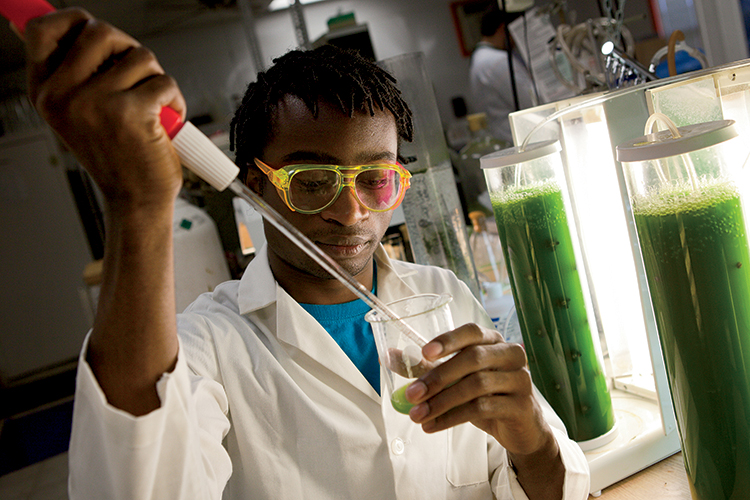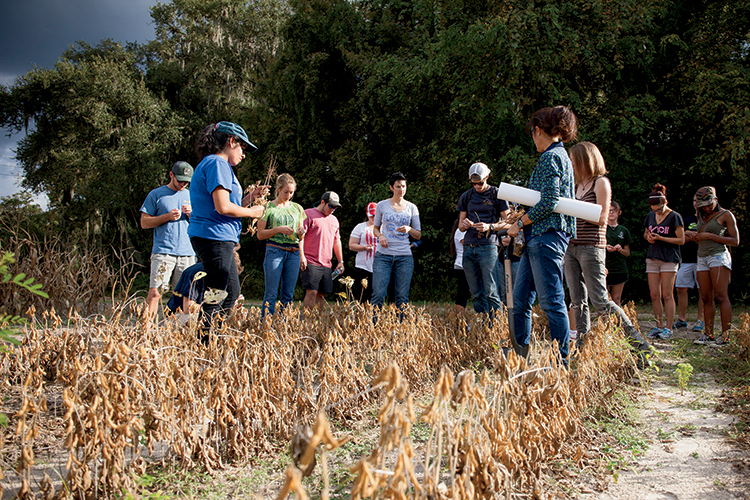Home > Farm > Ag Education > Florida Ag Careers Provide a Brighter Future
Florida Ag Careers Provide a Brighter Future
In partnership with: Florida Department of Agriculture and Consumer Services

With the benefits of student conferences and a summer internship at a major horticultural company in Chicago, University of Florida senior Will Dezern has been able to get a clearer picture of the agriculture industry.
As a freshman entering the University of Florida’s College of Agricultural and Life Sciences (CALS), Dezern knew the ag path offered a multitude of opportunities. Even though he didn’t come from a farming background, the Orlando native had developed an interest in plant biology in high school and researched where that interest could take him.
Now in his fourth year at CALS, Dezern continues to explore the myriad of career choices available while pursuing one of the many majors in agriculture.
“I’m a Plant Science major, with a specialization in plant genetics, working primarily in the Agronomy Department,” says Dezern, who worked in research and development for Ball Horticultural Company for his internship. “I was introduced to the horticultural side with Ball, and every time I looked around, it seemed there was a whole section of the industry I didn’t know much about. There’s a lot to learn.”
Strong Job Outlook
All those options for learning translate to an abundance of opportunities for college graduates with degrees in agricultural programs. A 2015 report by the USDA shows an estimated 57,900 high-skilled job openings annually in the food, agriculture, renewable natural resources and environmental fields in the United States.
“The employment outlook is very strong, and we try to hammer that home any time we have an opportunity to talk to prospective students,” says Dr. Elaine Turner, Dean of University of Florida’s CALS. “Our students are aware of the fact that for the types of things they’re studying, there are jobs out there.”

While there may be more depth in today’s ag industry than there was in years past, Florida has long recognized the importance of agriculture education. That is apparent in the work championed by Belinda Chason, who was named the 2014 Woman of the Year in Agriculture. Before retiring in 2011, Chason worked for 40 years for the Florida Department of Education, where she redesigned agriscience education and prepared curriculum that ensured a better workforce for the state’s ag industry.
International Opportunities
Ag students in Florida come from different backgrounds, and their career pursuits may lead them well beyond the state and to different countries. The International Agriculture Programs of Florida A&M University’s College of Agriculture and Food Sciences is designed for students interested in studying abroad and working internationally.
Students in the program are introduced to a diverse range of international issues and a comprehensive list of solutions, according to Harriett Paul, Director of FAMU’s Office of International Agriculture Programs and the Center for International Agricultural Trade Developmental Research and Training.
“We can’t solve agricultural problems with a single disciplinary approach,” she says, “so I’m a promoter of interdisciplinary work as it relates to solving problems in communities, particularly rural communities and the underserved in our international communities where we work. So students who are in the social sciences could also find an opportunity in our programs.”
Paul just completed a five-year program in which she taught a course called “Special Problems in Agronomy.” Coursework included students taking an 18-day immersion into South Africa to learn about the country’s agrarian lifestyle and help young students there develop knowledge of agriculture.



